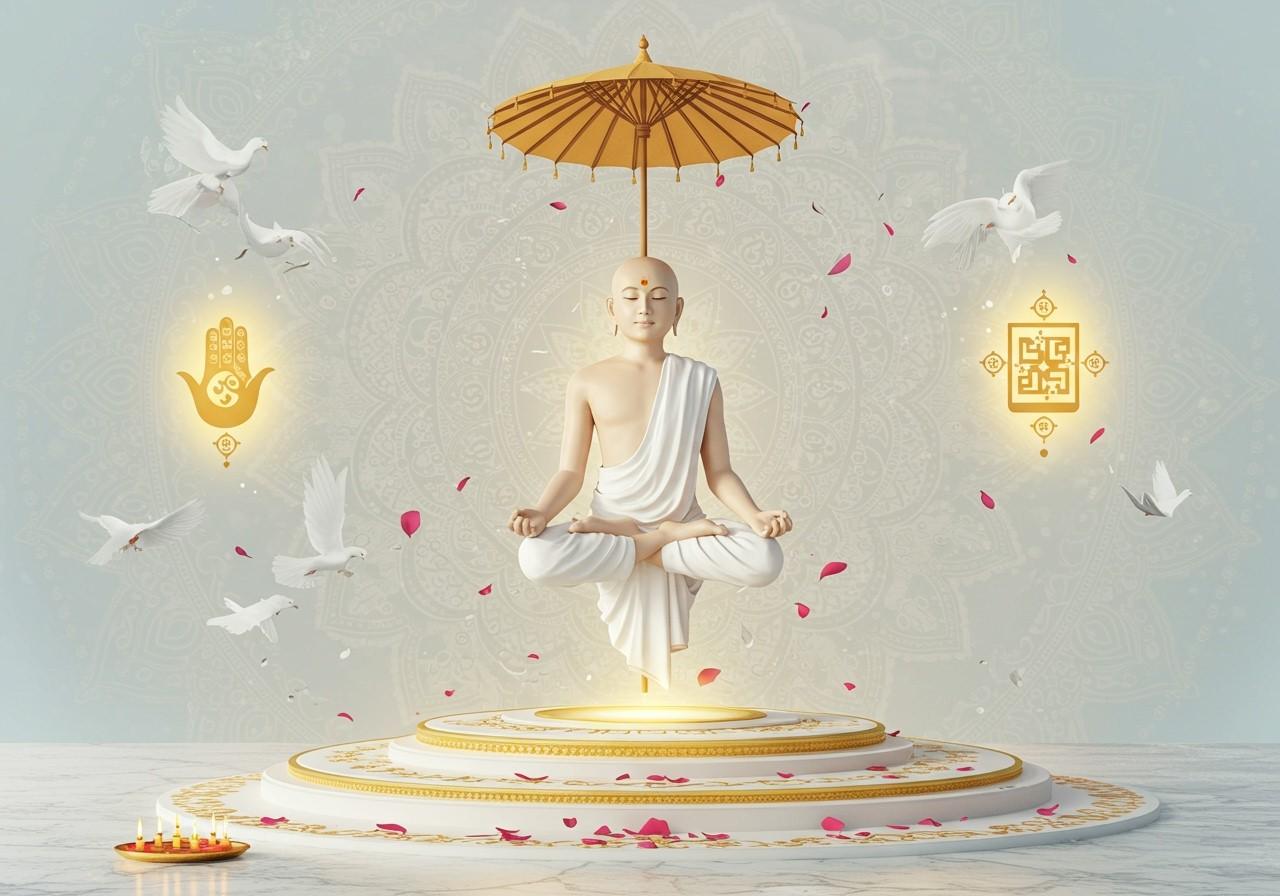
Jainism, an ancient Indian religion, emphasizes spiritual purity and enlightenment through disciplined non-violence (ahimsa) towards all living beings. As one of the three major ancient religious traditions in South Asia, alongside Hinduism and Buddhism, Jainism offers a unique path to spiritual liberation and bliss.
Origins and History
Tracing its roots back to the Indus Valley Civilization, Jainism’s history is deeply intertwined with Indian culture. Shaped by twenty-four spiritual teachers known as Tirthankaras, with Mahavira being the most recent and prominent, the religion has profoundly influenced Indian society.
Historically, Jainism spread across India, evolving into two main sects, Digambara and Svetambara. While differing in practices, both uphold Jainism’s core tenets of non-violence, asceticism, and the pursuit of truth. Understanding these historical roots provides a richer appreciation for Jainism’s enduring legacy.
Core Beliefs and Principles
At the heart of Jain philosophy lie several key principles. Ahimsa, the principle of non-violence, extends beyond mere pacifism to encompass a deep respect for all living beings, guiding daily actions and decisions.
Aparigraha, or non-possessiveness, encourages detachment from material possessions. By limiting desires and focusing on inner peace, Jains strive for a simple and content life, finding true fulfillment in spiritual growth rather than worldly acquisitions.
Anekantavada promotes a multi-faceted view of truth, fostering tolerance and understanding. It acknowledges the complexity of reality, encouraging open-mindedness and acceptance of diverse perspectives. This principle urges Jains to look beyond simplistic interpretations and embrace the richness of multiple viewpoints.
The concept of Karma plays a crucial role in the Jain path to Moksha (spiritual liberation). Every action has consequences, shaping future lives. By living virtuously, Jains purify their souls, progressing towards liberation from the cycle of rebirth. This emphasis on ethical conduct guides Jains towards a life of compassion and responsibility.
The Three Jewels – Right Faith, Right Knowledge, and Right Conduct – form the foundation of Jain practice. These interconnected principles guide individuals on their spiritual journey, fostering a balanced and meaningful life rooted in wisdom, understanding, and ethical action.
Jain Practices and Rituals
Jain rituals reinforce spiritual discipline. Fasting, a common practice, especially during festivals like Paryushana, purifies the mind and body, strengthening self-control and fostering detachment from worldly desires.
Meditation is central to Jain life, fostering inner peace, spiritual growth, and a deeper connection with one’s true self. Through regular meditation, Jains cultivate compassion and equanimity, essential qualities on the path to enlightenment.
Jainism and Hinduism: Distinctions and Similarities
While coexisting in India, Jainism and Hinduism are distinct religions with different origins and beliefs. Jainism developed independently, emphasizing non-violence, truth, and asceticism as its core principles.
Philosophical differences exist regarding God, the soul, and the universe. Jainism doesn’t believe in a creator God, focusing instead on individual soul purification. Hinduism, on the other hand, encompasses a vast pantheon of deities and a complex cosmology.
How Poojn.in Supports Your Jain Religious Needs
Poojn.in, India’s leading online store for cultural and religious goods, offers a wide selection of items specifically catered to the needs of the Jain community. Our collection is designed to support your spiritual journey and help you observe Jain rituals and practices with authenticity and convenience.
- Pure white cotton vastra (clothing): Perfect for temple visits and ceremonies, our vastra collection adheres to Jain principles of simplicity and purity. We offer a variety of sizes and styles to meet your needs.
- Traditional Jain puja items: Find everything you need for your daily puja rituals, including navkar mantra yantra, sthapana patra, and other essential items. We source our products from trusted suppliers to ensure quality and authenticity.
- Metal and crystal pratima (idols) of Tirthankaras: Honor the Tirthankaras with our beautiful and intricately crafted pratima. Choose from a range of materials and sizes to create a sacred space in your home.
- Jain prayer books and religious texts: Deepen your understanding of Jain philosophy and practices with our selection of books and scriptures. We offer texts for both beginners and advanced practitioners.
Explore our full range of Jain products at Poojn.in and discover how we can help you maintain your religious traditions. Our customer service team is available to answer any questions you may have.
Embracing the Wisdom of Jainism
Jainism’s teachings offer a path to peace, spiritual growth, and a life of balance and compassion. By embracing principles like Ahimsa, Aparigraha, and Anekantavada, we can learn valuable lessons about living in harmony with ourselves, others, and the world around us.
As we delve into the rich history, beliefs, and practices of Jainism, we gain a deeper appreciation for this ancient tradition and its enduring relevance in the modern world. Explore the wisdom of Jainism and discover how its teachings can enrich your life.
FAQs: Understanding Jainism
Are Jains Hindus? No, Jainism is a distinct religion separate from Hinduism, with its own unique set of beliefs, practices, and history.
What defines the Jain religion? Jainism is an ancient Indian religion emphasizing non-violence (Ahimsa), truth, and asceticism as paths to spiritual liberation (Moksha).
Why is non-violence so important to Jains? Jains believe that harming any living being, whether through actions, words, or thoughts, creates negative karma, hindering spiritual progress. Non-violence is therefore seen as the highest form of religious practice.


